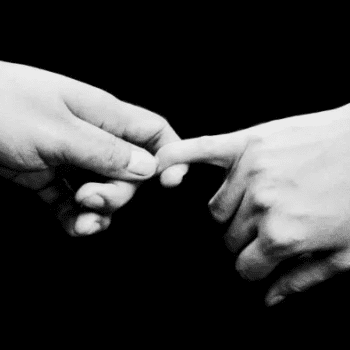The question people most often ask me is, “How can I believe in God, when so many innocent people suffer?” Those who ask it typically want to believe in God, but feel that the fact of innocents suffering leaves them no choice but to remain in their skepticism.
So the question begins with the assumption that God does not exist. It says, “I do not believe in God. Reconcile for me God’s existence with the suffering of innocents, and then perhaps I will.”
Those who already believe in God, such as myself, come at this question in a slightly different way. For us the question is, “Why does God allow innocent people to suffer?” While that question seems identical to the first, it isn’t exactly.
This second version of this question—the believer’s version of it—has an answer. Once one chooses to believe in God (a choice no more or less reasonable than the choice to believe there is no God), the problem of innocents suffering is resolved.
The alpha and omega of that resolution is trust. Speaking personally, I trust God. In every sense of the word, I believe in God. I believe that God is beneficent, merciful, and kind. I believe that God is, in a word, good.
So I start by taking to heart what John the Divine tells us (at 1 John 4:8): God is love.
In addition to being love, God is eternal.
As the Christian view of reality has it, the essence of every person—their spirit—is also eternal.
If a person is eternal, then their time here on earth, when compared to their total time of existence, lasts about as long as a hiccup.
So we have God, who is eternal; and we have each of us, also eternal. And during the time that we are alive on earth we are separated from God.
And during that time of separation, a lot of terrible things can happen to us.
But inevitably comes the day when death arrives at our side, takes our shaking hand, and leads us back to eternal God.
And when that happens we are reborn into our eternal selves.
When that happens we are comforted. We are restored. We are saved.
When that happens we will, from the vantage point of eternity, see and understand what we cannot possibly now. We will then see that everything is always working toward the good—no matter how bad whatever is happening here on earth might seem to us at the time.
When we are with God in the afterlife, we will know that all, after all, is perfectly fine. That everything is okay.
As Paul the Apostle put it: “Now I know in part; then I shall know fully, even as I am fully known.”
To be clear, none of this means that I’m okay with anyone suffering. I’m not, and fully embrace my moral obligation to do all that I can to alleviate any suffering that I can. And I certainly do not believe that it is God’s will that anyone suffer. What I believe is that God allows people to cause suffering in others, because his love for all of us prohibits him from violating the free will of any of us.
Relative to eternity all human suffering is over in the blink of an eye, and the moment we pass from this life to the next God comforts and restores us. (For we are all suffering innocents.) That is what I believe. I believe it because I believe that the figure known to history as Jesus Christ was God incarnate. And to believe that, I have only to locate within myself the special, expansive, integrated-with-the-universe feeling that we all have inside of ourselves, and identify it as the same Holy Spirit about which Jesus (in John 14) said:
And I will ask the Father, and he will give you another advocate to help you and be with you forever—the Spirit of truth. … the Holy Spirit, whom the Father will send in my name, will teach you all things, and will remind you of everything I have said to you.
I connect The Good within me to God, accept the story of Jesus Christ as true—and voila: I am no longer so burdened by the suffering of others that I become hopeless, bitter, and pessimistic. Instead I am able to proceed with hope, peace, and the joy that comes from knowing that the show we’re all in now is only the beginning, and that the best is yet to come.
(Believing in the best of Christianity does not mean that I must also accept—much less believe in—the worst of it. To prove that I wrote the fourteen tenets for the group Unfundamentalist Christians.)













